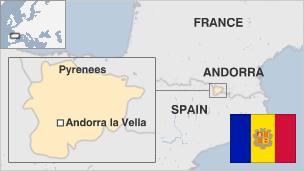As we've already established with The War of the Oaken Bucket, humanity is willing to go to war over the smallest things if tensions are already running high. It's hilarious on the surface, but it makes sense the more you think about it. Two parties are already angry and frustrated with one another, and eventually the last insult, no matter how dumb, is just too much. Sometimes these insults are actually insulting, like mass genocide of minority groups or direct attacks on foreign soil. But sometimes wars are fought over buckets and dogs. Like the 'Incident at Petrich' or the War of the Stray Dog.
So it's post WWI, post Balkan War, and Bulgaria and Greece are both finally free of the Ottoman empire. Problem is, its been so long since either of those places were independent countries, everyone is a bit fuzzy on exactly where the border is. Specifically where Thrace and Macedonia fit into the mix. Both Bulgaria and Greece feel they have a claim to Thrace, and Bulgaria is supporting the Macedonian separatist movement, which Greece isn't too keen on. To add to the border tensions, citizens on both sides keep making informal and unauthorized raids into the rival country.
Everyone's a little pissed off and itching for a reason to fight when a Greek border guard's dog gets away from him. Like any responsible pet owner, the guard goes after the dog, and ends up accidentally stepping into Bulgarian territory. A trigger happy Bulgarian, obviously expecting an imminent invasion of Greeks chasing dogs, shoots the man.
As you might imagine, the Greeks weren't too happy about this. The Greeks and the Bulgarians exchange fire for a bit, until a Greek officer steps forward under a white flag to negotiate a peace. The Bulgarians were either colorblind or just didn't care, because they shot the officer as well. *
This sparked outrage in Greece, largely because of Greece's new political leadership. Theodoros Pangolos had just been installed as dictator, and he wanted to establish a reputation for being a hardass, Nothing says 'fear me' quite like winning a war against your neighbor, so Pangolos set out to make a mountain out of that molehill. He instructed the press to leave the dog out of the story, and instead claimed that the Bulgarians had attacked a Greek military outpost for funsies with no good reason. Outraged, Pangolos demanded that the Bulgarian government pay 600,000 drachmas, prosecute the soldiers involved, and make a formal apology within 48 hours. The Bulgarians, predictably, refused.
The Greeks decided that if the Bulgarians weren't going to pay up, then they were going to invade. They appealed to Serbia for help, then started merrily shelling the city of Petrich, and capturing outlying villages.
The Bulgarians, for the most part, evacuated the area. The government then went to the League of Nations, the beta version of the UN, and asked for help. The League of Nations was more than happy to assist. The League told the Greeks to knock it off, and get out of Bulgaria. Additionally, Greece needed pay the Bulgarians recompense of 45,000 pounds. To encourage the grumbling Greeks, they sent out military forces from France, Italy, and Britain to make sure that everything went smoothly. Under the eyes of their more powerful neighbors, the Greeks couldn't help but comply.
When it came down to it, the war lasted ten days (October 19, 1925- October 29, 1925), and had a death toll of less than 100. The Bulgarians emerged the victors, and League of Nations got a chance to prove that they were necessary and relevant. The dog was never heard from again.
*The Bulgarians didn't care about the white flag. There's no such thing as white/anything colorblindness.
Sources
League of Nations
Military History Now
History.Com
War History Online
 |
| Modern Petrich |
Everyone's a little pissed off and itching for a reason to fight when a Greek border guard's dog gets away from him. Like any responsible pet owner, the guard goes after the dog, and ends up accidentally stepping into Bulgarian territory. A trigger happy Bulgarian, obviously expecting an imminent invasion of Greeks chasing dogs, shoots the man.
As you might imagine, the Greeks weren't too happy about this. The Greeks and the Bulgarians exchange fire for a bit, until a Greek officer steps forward under a white flag to negotiate a peace. The Bulgarians were either colorblind or just didn't care, because they shot the officer as well. *
This sparked outrage in Greece, largely because of Greece's new political leadership. Theodoros Pangolos had just been installed as dictator, and he wanted to establish a reputation for being a hardass, Nothing says 'fear me' quite like winning a war against your neighbor, so Pangolos set out to make a mountain out of that molehill. He instructed the press to leave the dog out of the story, and instead claimed that the Bulgarians had attacked a Greek military outpost for funsies with no good reason. Outraged, Pangolos demanded that the Bulgarian government pay 600,000 drachmas, prosecute the soldiers involved, and make a formal apology within 48 hours. The Bulgarians, predictably, refused.
 |
| First session of the League of Nations |
The Bulgarians, for the most part, evacuated the area. The government then went to the League of Nations, the beta version of the UN, and asked for help. The League of Nations was more than happy to assist. The League told the Greeks to knock it off, and get out of Bulgaria. Additionally, Greece needed pay the Bulgarians recompense of 45,000 pounds. To encourage the grumbling Greeks, they sent out military forces from France, Italy, and Britain to make sure that everything went smoothly. Under the eyes of their more powerful neighbors, the Greeks couldn't help but comply.
When it came down to it, the war lasted ten days (October 19, 1925- October 29, 1925), and had a death toll of less than 100. The Bulgarians emerged the victors, and League of Nations got a chance to prove that they were necessary and relevant. The dog was never heard from again.
*The Bulgarians didn't care about the white flag. There's no such thing as white/anything colorblindness.
Sources
League of Nations
Military History Now
History.Com
War History Online







